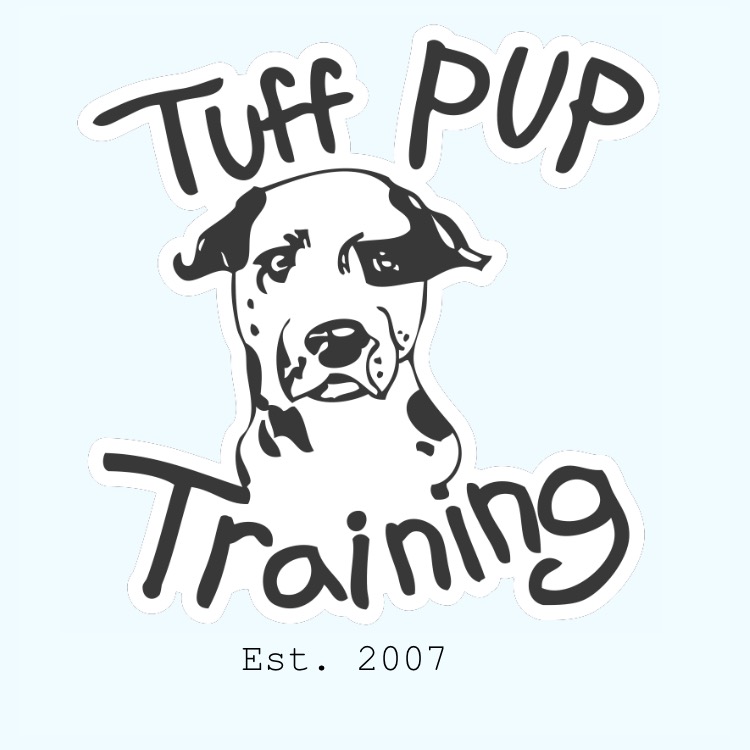Mom, I’m bored.
Dogs are a lot like children. If you don’t give them something fun to do, they will make their own fun—and often not in ways you approve of.
Give your dog plenty of physical and mental exercise, and you get a happier, healthier, better-behaved dog. Well-exercised dogs bark less, chew less, sleep more, and rest easier if left home alone. They are also much less likely to rummage through the trash or attack the couch cushions.
What about leash walks?
Leash walks are great brainteasers because of all the sensory information dogs get from them, but they don’t count as aerobic exercise. Your dog needs to run, swim, or do something else that gets his heart pumping for at least 30 minutes every day. For those dogs who become anxious on leash walks, note that there are other great ways to mentally and physically enrich your dog.
Workouts for the body.
Chasing a ball or Frisbee
Swimming
Playing tug
Active play with other dogs
Off-leash romps or hikes.
Workouts for the brain.
Work to eat. Biologically speaking, your dog is not supposed to have a bowl of kibble plunked down in front of him. He is a hunter by nature, built to work for and find his food. Mimic this by serving your dog’s food in a Kong or treat ball. Your dog will spend the first part of the day figuring out how to get at his food and the rest of it recovering from the mental effort. Perfect!
Toys galore. Toys are a great way to engage your dog’s brain. Dogs have distinctly individual toy preferences, depending on the day, time, and situation. Do some detective work and find out what truly interests your dog.
The best toys have a purpose. They deliver food, present a challenge, squeak, or make themselves interesting in some other way. Some classics to consider: Rope toys, plush toys (with or without squeakers), Hide-A-Bee (Squirrel, Bird), tricky treat balls, soft rubber toys (vinyl), and hard rubber toys like Kongs and nyla bones.
Once you have a good selection, develop a toy strategy. Designate a popular toy for use only during alone time, like when you need to leave your dog in his crate, confinement area, or a spare room. Then, rotate the other toys daily to keep the novelty factor high.
Planet Dog Toys - (We love their ORBEE TUFF toy).
PHYSICAL AND MENTAL EXERCISE: A PLAN
To make sure your dog gets the exercise and stimulation he needs, the best thing to do is to create a plan. Think about your dog’s daily routine and choose what type of exercise (for the body and brain) your dog will receive, who will be in charge of making it happen and for how long.
Here are some people whose help you may be able to enlist:
Partner, family members, friends & neighbors
Dog walker
Dog daycare
For recommendations on local Philly dog walkers check here.
Types of activities:
Leash Walks
Teach Tricks
Fetch
Visits to Dog Daycare
Toy Dissection
Stuffed Kong
Tug-of-war
Chewing bones
Bully sticks, etc.
Treat Ball (for meals)
Swimming
Other:_________________
The plan
Here is a good example of a mental enrichment plan for a dog (with low impact for an owner and high enrichment impact for the dog).
Wake up, take your dog to potty and then feed your pup half a meal from food dispensing toys (Kongs, Busy Buddy, etc). Use this time to get dressed or cook breakfast for yourself.
Then take ten minutes and play a training game to teach your dog a new trick or to sharpen and old skill. If you need ideas on fun training games to play contact Tuff Pup Training.
Pause for 30 seconds and then play fetch or tug-of-war with your dog for another 10 minutes. Fetch and tug are both mental and physical enrichment games. Plus it will get any stress out of your dog's system that may have been pent up from the training.
Pause 30 seconds as you put away the toys and then take your dog for a 10 minute walk around the block. This gives time to potty and a chance to come down from the adrenaline of playing fetch and tug.
Finally, give your dog a Kong (stuffed frozen with a little peanut butter or yogurt) or other chew toy inside of their crate or on their dog bed. This will focus any energy left over into a calm state. The chew toy will help them self-sooth and forget that you might be leaving them to go to work.
The example plan described above will only take 31 minutes while effectively getting your dog tired, happy and smarter all before you leave for work.
Lastly, keep track of your dogs plan in writing. Make notes about what works best. Make reminders on your phone that can alert you of planned activities with your pup (though your dog will probably remind you). Set a timer for 10 minutes if you follow the plan above. Try making a chart with your family that looks like the following:


